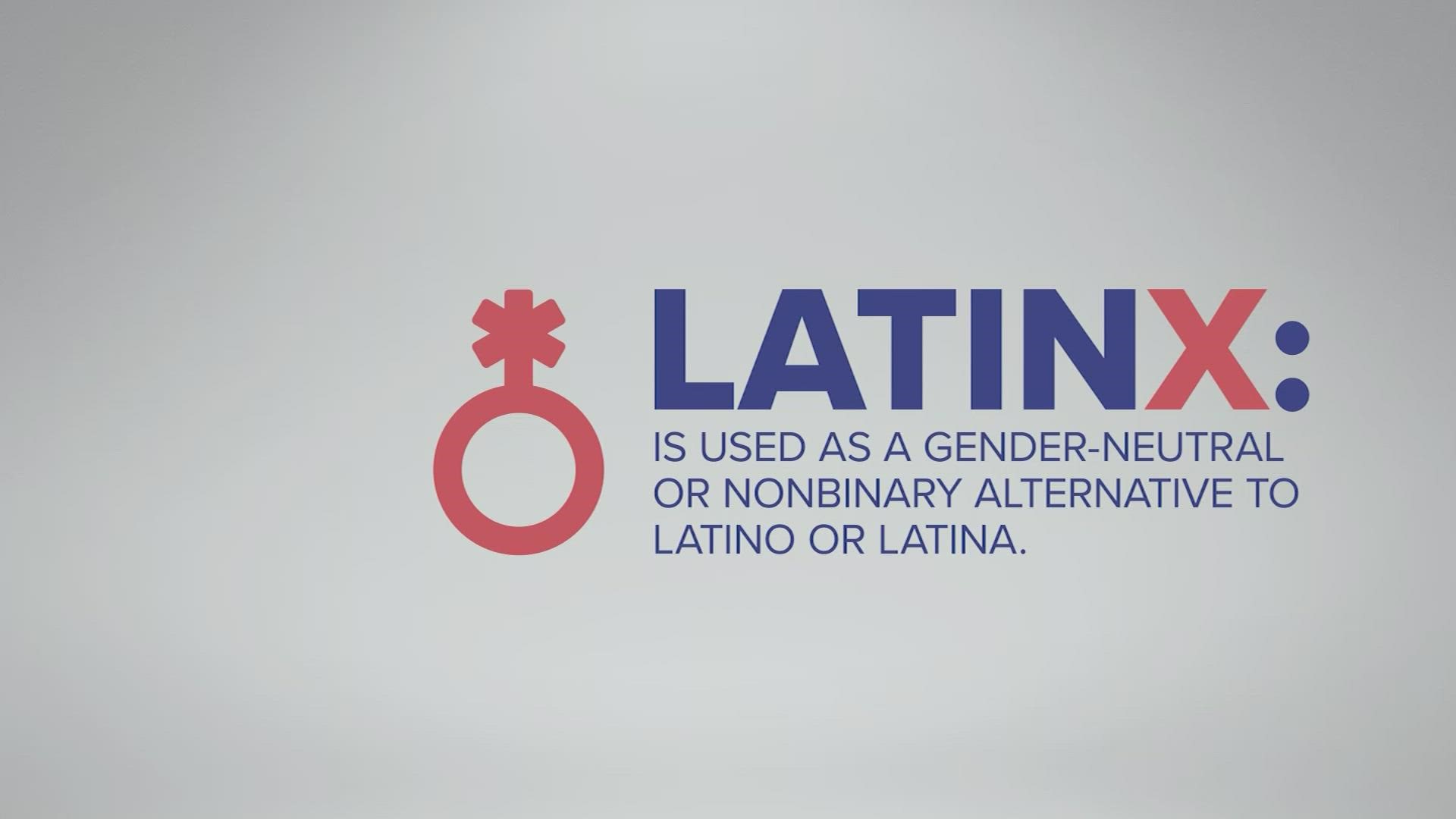HOUSTON — A fairly new word is being used to describe those of Latin American heritage.
The word is Latinx.
But this word is not really accepted by many in the community. As a matter of fact, some people even find this word offensive.
First, let's start with defining the word Latino.
Latino is a person of Latin American origin or descent.
In recent years, Latinx has been used to describe gender-neutral or nonbinary alternatives to Latino or Latina.
"Latinx being more inclusive of the genders of all peoples," said Guillermo de los Reyes an Associate Professor of Latin American Cultures and Literatures and Director of Undergraduate Studies.
But here’s the problem, the Spanish language is gendered. Almost all words are male or female.
For example, Latino is male and Latina is female. And the male term Latino is used as the universal term for everyone or the plural term. That is why many Latinos don’t like the 'x' in Latinx.
"Some people oppose the 'x' at the end. Doesn't follow any Spanish rules," said Guillermo.
One of those is community activist Adrian Garcia.
"I personally don’t use it or identify as a Latinx," said Garcia. "It’s almost like whitewashing our culture. Whitewashing our communities."
And he’s not alone.
According to the Pew Research Center, of the people that have heard of the term, 65% say the term should not be used to describe the Hispanic Latino population.
Only 33% say it should be used.
"I think it creates a lot more confusion. It drives our community even to more groups," said Garcia. "We have been marginalized for a while. I think creating another word or label further divides our communities."
But then you have people like Austin Ruiz who works with the LGBTQ community and considers himself a Latinx. Even though he says he identifies as a male, he uses the term to be more inclusive of others.
"I use the term Latinx because I see that as a simple and meaningful way to validate others' existence other than my own," said Ruiz. "We can talk about Latino or Latina but then you are missing a whole subset of people that don’t fit in those two terms."
In the end, it’s not a one size fits all approach. The best advice may be to ask the person what they want to be called.

